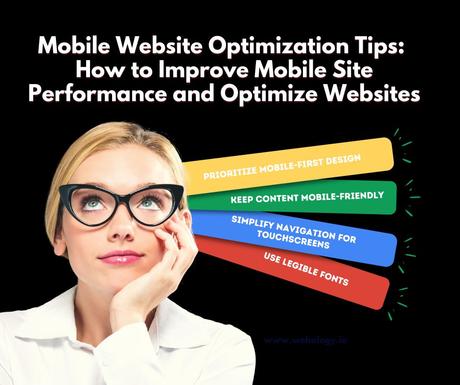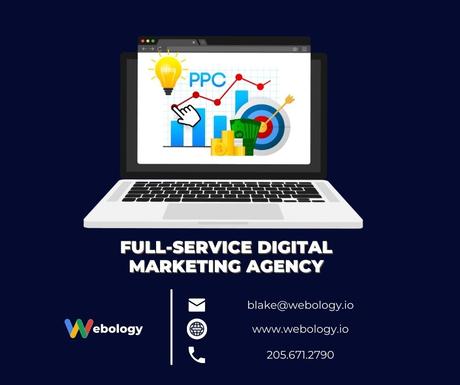In the evolving world of search engine optimization (SEO), many factors are touted as crucial for ranking high on search engines. One such factor frequently discussed is readability. But just how important is readability when it comes to SEO? This question has sparked debates in the SEO community for years.
Based on current evidence from the Google data leak, I argue that while readability is not a direct ranking factor, it still plays a significant role in influencing other critical metrics that impact SEO.
Table of Contents
Toggle- Understanding Readability in the Context of SEO
- The Misconception: Readability as a Direct Ranking Factor
- The Reality: Readability’s Indirect Influence on SEO
- Quality Content vs. Readable Content
- Practical Tips for Enhancing Readability and User Engagement
- Webology’s Final Take:
Understanding Readability in the Context of SEO
Readability refers to how easy it is for users to read and understand your content. This encompasses various elements, such as sentence structure, vocabulary complexity, and formatting. In the context of SEO, readability is often emphasized because it directly affects user engagement and satisfaction.
When content is easily digestible, users are more likely to stay on the page longer, engage with the material, and return for more.
The Misconception: Readability as a Direct Ranking Factor
A common misconception in the SEO community is that readability directly impacts search engine rankings. This belief likely stems from Google’s consistent emphasis on user experience and high-quality content. However, it’s essential to clarify that readability itself is not a direct ranking signal used by Google or other major search engines.
To illustrate this point, consider the example of Kyle Roof, an SEO expert who managed to rank a webpage filled with lorem ipsum text in a competitive SEO contest. By strategically incorporating latent semantic indexing (LSI) terms and entities from Google’s Natural Language Processing database, Roof demonstrated that content readability was not a deciding factor in the page’s ranking success.
Instead, the page leveraged other known SEO signals effectively, proving that readability alone does not influence rankings directly.
The Reality: Readability’s Indirect Influence on SEO 

While readability may not be a direct ranking factor, it indirectly influences SEO through its impact on user behavior. For instance, readable content can enhance metrics like dwell time—the amount of time a user spends on a page before returning to the search results. Longer dwell times can signal to search engines that the content is valuable and relevant, potentially improving rankings.
Additionally, readable content promotes user engagement, encouraging readers to explore other pages on the site, share the content, or link back to it—all actions that contribute positively to SEO. The recent leak of Google’s internal documents has shed light on various data points the company tracks, including user engagement metrics like clicks and scroll depth. These insights reinforce the idea that while readability is not a direct factor, its influence on user behavior plays a crucial role in SEO.
Quality Content vs. Readable Content
It’s important to differentiate between high-quality content and readable content. High-quality content addresses user intent, provides valuable information, and demonstrates authority on the subject matter. Readable content, on the other hand, ensures that this information is presented in a way that is easy to understand and digest.
In an ideal scenario, your content should be both high-quality and readable. However, focusing solely on readability without ensuring the content’s quality and relevance can fall short of meeting user needs and search engine expectations.
A perfect example of this is academic papers that appear at the top of search results. Often, they are written to a an audience with a post-graduate degree and would absolutely flunk a SEO readability test from Yoast. Yet, in spite of that and the fact that they are often duplicated content, they rank and get traffic.
Therefore, the goal should be to create content that is both informative and engaging while maintaining a level of readability that caters to your target audience.
Related: How to Set Up Yoast in WordPress

Practical Tips for Enhancing Readability and User Engagement
Improving readability doesn’t mean compromising on content quality. Here are some actionable tips to enhance readability while maintaining high standards of content:
- ol]:!pt-0 [&>ol]:!pb-0 [&>ul]:!pt-0 [&>ul]:!pb-0" value="1">Use Clear and Concise Language: Avoid jargon and complex vocabulary. Aim for simplicity and clarity in your writing.
- ol]:!pt-0 [&>ol]:!pb-0 [&>ul]:!pt-0 [&>ul]:!pb-0" value="2">Break Up Text with Headings and Subheadings: Organize your content with headings and subheadings to make it easier for readers to scan and find relevant information.
- ol]:!pt-0 [&>ol]:!pb-0 [&>ul]:!pt-0 [&>ul]:!pb-0" value="3">Incorporate Bullet Points and Lists: Use bullet points and numbered lists to present information in a digestible format.
- ol]:!pt-0 [&>ol]:!pb-0 [&>ul]:!pt-0 [&>ul]:!pb-0" value="4">Shorten Paragraphs and Sentences: Long blocks of text can be daunting. Keep paragraphs and sentences short to enhance readability.
- ol]:!pt-0 [&>ol]:!pb-0 [&>ul]:!pt-0 [&>ul]:!pb-0" value="5">Utilize Visuals: Integrate images, infographics, and videos to complement your text and provide visual breaks.
- ol]:!pt-0 [&>ol]:!pb-0 [&>ul]:!pt-0 [&>ul]:!pb-0" value="6">Optimize for Mobile: Ensure your content is mobile-friendly, as a significant portion of users access content on their mobile devices.
I also like to use tools like Hotjar to see exactly how users interact with my website. If you have about 1,000 visitors to sample, that’s enough data to make meaningful changes to your UX and UI.

Webology’s Final Take:
In summary, while readability is not a direct ranking factor in Google’s search algorithm, its importance cannot be overlooked. Readable content positively influences user behavior, leading to improved engagement metrics that search engines do consider. Therefore, creating valuable, engaging, and readable content should be a priority for anyone looking to enhance their SEO efforts.
The recent Google leak has highlighted the complexity and multifaceted nature of the search algorithm, reminding us that SEO is about much more than adhering to a single strategy or factor. Instead, it requires a holistic approach that considers various elements, including authority, user experience and relevance.

To truly succeed in the competitive landscape of SEO, focus on delivering content that meets user intent, engages your audience, and provides real value. But never forget the importance of links and authority. They are the primary signals search engines like Google use to rank websites. That might not fit the official narrative according to many in the industry, but I do SEO for clients and my lifestyle is directly impacted by client retention here at Webology…
We keep a negative client churn rate at my agency by focusing on what works the best over time, and that’s consistently been a heavy focus on link-building for over a decade now. If things change, I’ll be the first to pivot when and if necessary. Until then it’s authority first, then content comes second.
